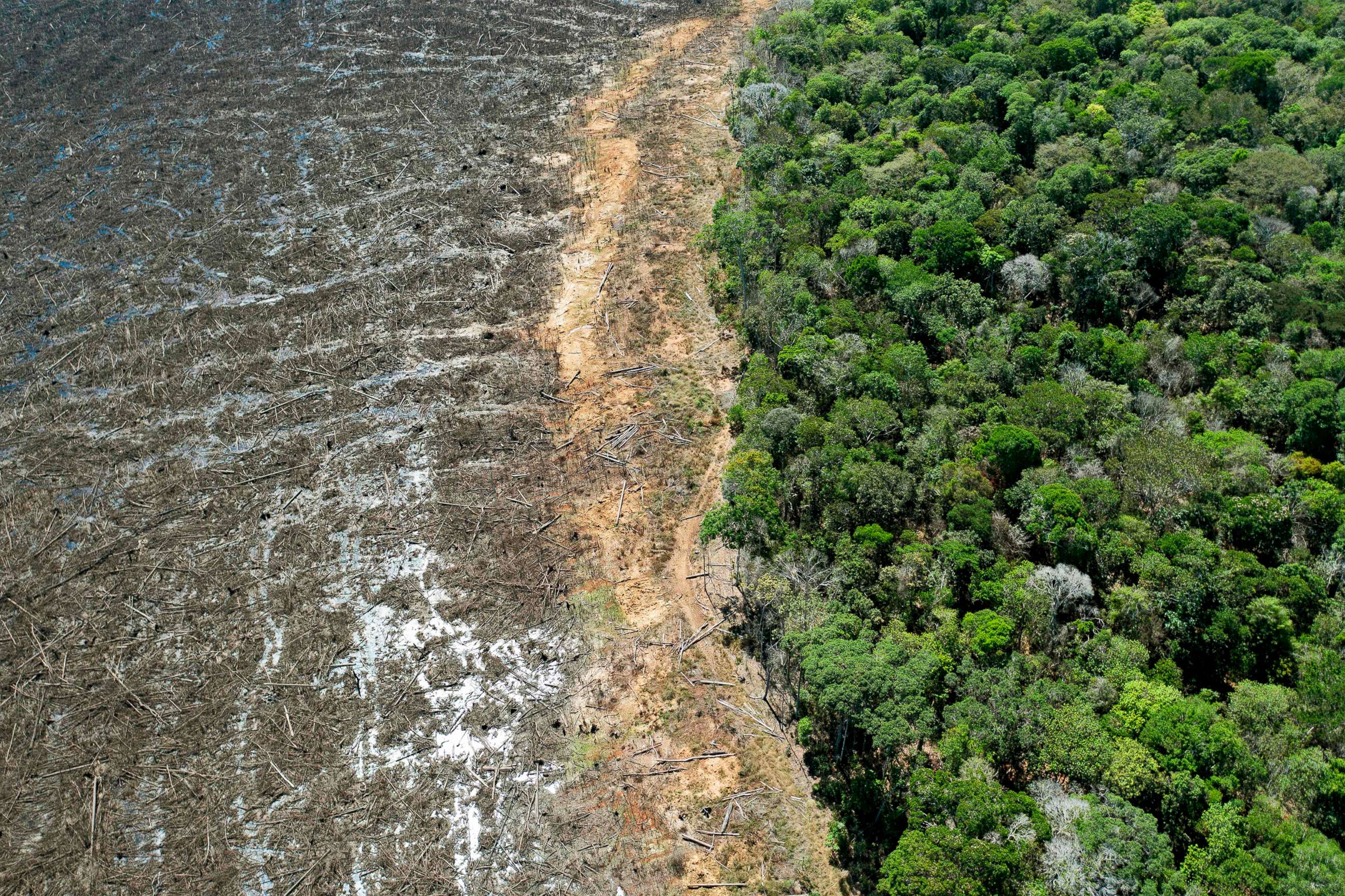Forest management could reduce carbon dioxide emissions by billions of tons a year: Study
The solutions could play a "critical role" in reducing emissions.
Forest management, when implemented correctly, can not only reduce the number of devastating wildfires that rage every year but also the billions of tons of carbon dioxide emissions that result from them as well, researchers have determined.
The mitigation potential for avoiding deforestation, implementing forest management activities, increasing harvest rotations and reforestation and afforestation could reduce carbon dioxide emissions by up to 6.6 billion tons a year by 2055, according to a study published Tuesday in Nature.
The avoidance of deforestation in the tropics would have the largest impact, which could account for up to an estimated 54% of the total mitigation of carbon dioxide emissions, the researchers, who used models to study the forestry activities in 16 different regions, determined. The tropics, Brazil, the Democratic Republic of Congo and Indonesia contribute to the largest share of emissions mitigation in all of the scenarios modeled in the study.

The majority of the mitigation of carbon dioxide emissions in the U.S. would derive from forest management intensification and afforestation.
Forests are critical to stabilizing the climate and can "substantially" reduce greenhouse gas emissions due to both the oxygen the trees provide and the ability to absorb carbon in the atmosphere.
"It has long been recognized that nature-based climate change mitigation strategies, which leverage natural ecosystem carbon sequestration and storage processes, have the potential to substantially reduce global greenhouse gas emissions," the study said.

The forest management activities could cost about $393 billion per year, which the authors project is higher than recently reported. About a quarter of the costs would come from private land managers.
However, the findings of the study "confirm that the global forest sector could play a critical role in achieving cost-effective global climate change mitigation," the authors concluded.





